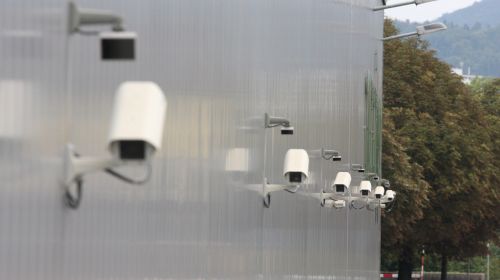Lie Detection, Special Treatment at the Airport, and Recursive Cameras (Friday Links Roundup)


Salon has a nice piece on how research shows the —the impossibility, really—and how people consistently overestimate their ability to do so. And, how people consistently misidentify signs of stress (from a variety of causes) as proof of lying. Of course, an entire TSA program has been built on the premise that people can be trained to detect lies with a reasonable level of certainty.
Speaking of misguided airline security programs, Ethan Zuckerman of the Berkman Center for Internet and Society has some interesting on his participation in the TSA’s Pre-Check program. He discusses one aspect of the program I hadn’t focused on before: even when you’re in the program, you can’t predict when you will and will not be invited to go through the special, expedited Pre-Check line. This randomness is a security feature; one result is that you can’t arrive at the airport later. But when you do get picked for the Pre-Check treatment, it’s reportedly very pleasant (and no doubt, for many of the lucky enrollees, a source of the cheap status thrill that comes from being “special”). Zuckerman notes that the Pre-Check lines he’d been through were physically separated from the regular TSA screening lines, speculating that this is to minimize resentment on the part of the suckers going through the normal TSA gauntlet.
Zuckerman also points to this far of the program by Michael Lind, who places Pre-Check in the context of a U.S. airline industry “eking out nickels and dimes by playing crudely on the snobbery of their customers” through the various elite-flyer programs. Unlike such purely commercial programs, however, he argues that “security screening is an onerous civic duty” that “should be shared equally by rich and poor alike.” But “at many airline checkpoints there are two lines. The long line looks like America; the short line is made up mostly of affluent white men.” Ultimately, he concludes, “in true crony capitalist fashion, the precheck program blurs the line between the government’s security function and the airlines’ purely commercial frequent flier programs.”
CNET has published another advertising industry (in this case by advertising industry executive Eric Wheeler) once again featuring an apocalyptic warning that restoring individual control over online tracking will mean “the end of a free Internet and a crippling blow to the technology industry.” I’ve outlined what’s wrong with that argument already. Insofar as that industry has been built upon ethically problematic, non-consensual monitoring of individuals’ private internet usage, it deserves to be rolled back, just as the telemarketing industry was rolled back by the “do not call” registry. The truth, of course, is that there’s plenty of money to be made through internet advertising without intruding on privacy. And insofar as Americans decide to enforce our privacy values against future “innovation” in the industry’s capability for spying on customers, the question is: where will it stop? How much intrusion should we allow before we finally say “enough”—and won’t the industry just yell and scream at that point, as they are now?
Washington DC’s WTOP.com that the speed camera system in nearby Prince George’s County, MD is being hit by a plague of camera vandalism incidents. The speed cameras have been shot, tipped over, had their legs sawed off, and been burned down. I’ve written before about Americans’ ambivalent attitude toward speeding laws, and predicted that something will have to give as we gain the technological capacity for 100% enforcement of all rules—either behavior will have to change drastically, or our traffic laws will have to change, or many will see these systems as oppressive and resent them. Score one for that third possibility. The county police’s solution to this trend? To install new cameras to watch the old cameras. You have to wonder if the next camera-resenting vandal won’t just destroy first one camera, and then the other. Maybe the police would then add a third camera...

